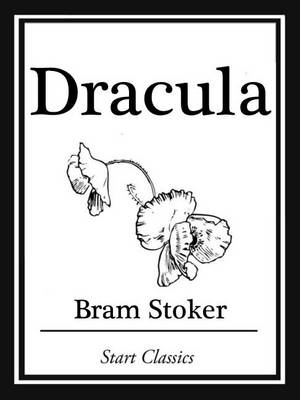Reviewed by Briana @ Pages Unbound on
And a world without vampires sounds very desirable while one reads this book. Stoker’s vampires have a bit of the sex appeal that characterize more modern vampires—they’re young, beautiful, and seductive—but that appeal is tempered by the aura of complete evil they exude. Stoker draws very explicit parallels between Dracula and Satan and emphasizes that the souls of the Undead are barred from heaven. Still, Dracula is not a “scary” book. The plot is fairly obvious so there is little suspense, and there is a sense that vampires go after very specific people, and you’ll notice if they’re after you. No need to fear bumps in the night, or strange flapping at your window, after reading this one. However, it does have just the right amount of delicious creepiness, as readers are forced to watch with some type of fascinated horror as Dracula plots his grand scheme to take London and drains his first victims.
Although Dracula sounds uncomplicatedly like “evil incarnate,” he is basically the most complex character. Like all vampires, he has some duality, as he was once human and is now something completely different. His two natures do not ever seem in competition (nor do any vampires’ in the book), but the human characters seem to be aware of them and willing to fight for the human soul they believe is still waiting, somewhere, for its chance to rest.
Everyone besides Dracula is fairly one-dimensional. The women, in particular, are essentially the ideal of womanhood—sweet, quiet, pure, and devoted to the men in their lives. They serves as a symbol of all that is good in the world and inspire men to go forth and battle evil (i.e. vampires). However, the flatness didn’t bother me. In the first place, it’s characteristic of a lot of literature of this time period, so I was hardly surprised. In the second place, I can get behind an “ideal” woman once in a while. They are, after all, quite nice people. Also, Stoker does imbue his with a little bit of spunk and intelligence, even if the men in the story are more content to admire such intelligence and courage rather than allow the women to actually use it.
So, Dracula isn’t my favorite classic. It never really caught me off guard, either with a surprising plot twist or any particularly acute philosophical thoughts. It is relatively straightforwardly a battle between the good and the evil in the world. However, solid prose and a somewhat meandering plot that readers need to stick together make it an enjoyable read, and one worth investing time in. Also, it’s a classic that has had a significant impact on much of current popular culture—so why not read it?
Reading updates
- Started reading
- 23 February, 2015: Finished reading
- 23 February, 2015: Reviewed
- Started reading
- Finished reading
- 23 February, 2015: Reviewed
